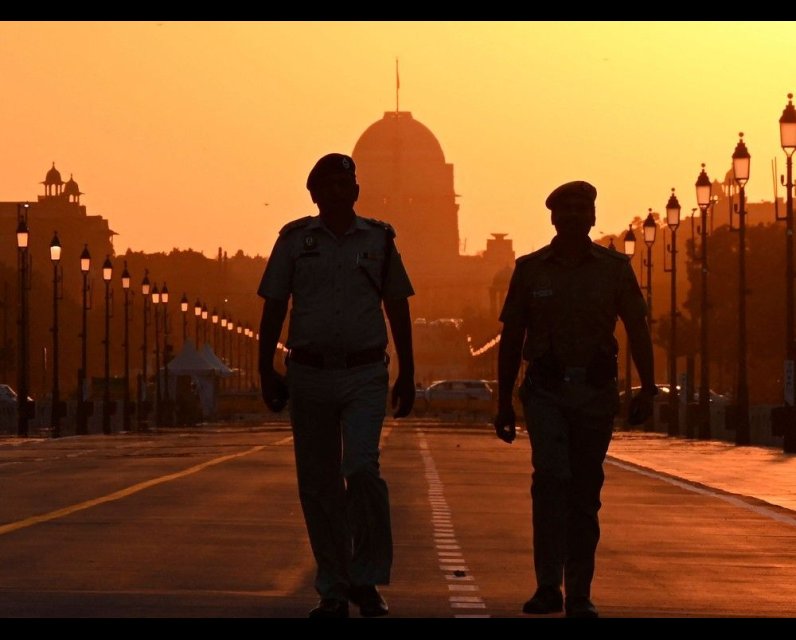Source Feed: National Post
Author: Chris Lambie
Publication Date: July 17, 2025 - 16:49
Indian refugee claimant's story 'strikingly similar' to nearly 200 others who used same consultant
July 17, 2025

A young Indian man, denied refugee status in Canada because his story of being framed for his friend’s murder was “strikingly similar” to five people who travelled here with him and nearly 200 others who employed the same immigration consultant, has won another chance at staying in Canada.
Parwinder Singh took the decision from Canada’s Refugee Appeal Division (RAD) to a federal court judge for review. The judge granted the review and sent Singh’s case back to another decision-maker at the division for re-evaluation.
“Although narrative similarities between claimants may reasonably ground a negative credibility inference, discrete or incidental similarities in sentence structure and vocabulary do not — in and of themselves — impugn a claimant’s credibility,” Justice Guy Régimbald wrote in a recent decision out of Ottawa.
“Asylum narratives are not exercises in creative writing, and a lack of prosaic originality should not be confused for falsehood, fraud, or the deliberate plagiarism of another person’s story. In this case, the RAD put form over substance in its analysis of Mr. Singh’s narrative. Its conclusion that the narrative was not genuine is therefore unreasonable.”
While he was still in India, Singh “sought out the services” of an immigration consultant named Deepak Pawar, Régimbald wrote in his decision dated July 11.
Singh “maintains that the similarities between his basis of claim narrative and those of other claimants are not enough to impugn his credibility, and that what similarities do exist are more form than substance,” said the decision.
Lawyers representing Immigration Minister Lena Diab responded that “the RAD reasonably found Mr. Singh’s narrative to be fraudulent, insofar as his (basis of claim) was ‘strikingly similar’ to those of others, including individuals who travelled to Canada with him.”
Singh lived in the village of Basant Pura, in the Indian State of Haryana, said the decision.
“The events leading to his departure from India date back to the summer of 2019, when he was a sixteen-year-old boy attending secondary school.”
Singh testified that, on June 25, 2019, he was walking home from school with a group of friends “when they were suddenly accosted by another group of boys carrying knives,” said the decision. “A brawl breaks out and Mr. Singh flees, but the ensuing violence results in one of his friends being stabbed and killed. The group allegedly responsible for his death includes the nephew of a well-known politician.”
Three days later, Singh said local police visited his family home to investigate his friend’s death. “He is brought to the police station, where he is interrogated and provides a statement about the events of June 25, 2019.”
A week later, Singh said local police returned to his home and dragged him to the station, where he spied “the group of boys who had accosted him earlier, including the politician’s nephew,” according to the decision.
“The police force him into a small room, where they inform him that the other boys have all given statements accusing him of killing his friend. Mr. Singh is then beaten to the point of losing consciousness. The police keep him in custody for three days.”
Singh said his father rounded up “some influential people in the village” on July 3, 2019, to demand his son be released.
“The police agree to do so upon payment of a bribe. Before letting the boy go, the police take his signature and fingerprints and threaten him to stay quiet about what transpired. His father takes him to the nearest hospital for treatment.”
Nearly a week later, police called Singh and told him to report to the police station.
“He is afraid of being beaten again, but reports there with his father out of fear of further trouble with the authorities. They wait at the station for hours, being periodically insulted by the local officers, before being told to return there in two weeks’ time.”
Feeling that it was no longer safe to stay in India, Singh fled to New Delhi on July 12, 2019, where he met with Pawar, the immigration agent. “In the meantime, his father arranges the necessary funds and travel documents for Mr. Singh to travel to Canada, where he enters on Nov. 7, 2019, falsely claiming to be participating in a Tae Kwon Do tournament. He claims protection on the basis that he fears harm from the police and his deceased friend’s family.”
The immigration minister intervened in Singh’s case on Feb. 13, 2023, alleging his claim lacked credibility because his “narrative is strikingly similar to those of others, including individuals who travelled to Canada with him and, as such, is not genuine. In support of this allegation, they produce evidence to demonstrate that his narrative contains language, phrases and other similarities to five other claimants who travelled to Canada with the claimant from India, and nearly two hundred other (basis of claim) narratives disclosed by claimants from India. This evidence stems from a Canada Border Services Agency analysis of claims submitted with the assistance of Mr. Pawar, the immigration consultant who represented Mr. Singh.”
Singh amended the narrative that forms the basis of his claim for refugee protection on Feb. 23, 2023. “He now claims that he also fears persecution in India due to his active support of an independent Khalistan, a cause for which he has advocated since coming to Canada.”
Canada’s Refugee Protection Division granted that second claim “despite ‘credibility concerns about the incidents in India and the claimant’s motivation to come Canada,’” said the decision. “Overall, it finds that those concerns do not outweigh his testimony and corroborating evidence in support of his pro-Khalistan views and well-founded fear of persecution.”
Lawyers for the immigration minister appealed that decision and won.
“They reiterate that Mr. Singh’s narrative is fraudulent and that his claim should be accordingly rejected,” said the decision.
“The RAD agrees with the minister. Its analysis relies mainly on alleged similarities between Mr. Singh’s narrative and that of NS, an individual who travelled to Canada from India on the same flight, and who was also represented by Mr. Pawar. The RAD notes twenty-one similar passages between their respective narratives, concluding that the two (basis of claims) are likely duplicates of each other, and therefore fraudulent.”
The Refugee Appeal Division saw Singh’s claim that he was “engaging in pro-Khalistan activity” as “yet another fraudulent refugee claim,” said the decision.
It ruled Singh is neither a convention refugee nor a protected person, and set aside the Refugee Protection Division’s decision.
The Refugee Appeal Division based “its credibility finding on a list of similarities between Mr. Singh’s narrative and that of NS,” Régimbald said.
“It is entitled to do so: ‘courts have found that it is not unreasonable to draw a negative inference as to credibility from unwarranted similarities between a refugee claimant’s narrative and the narratives of other unrelated claimants.’”
“However, not all similarities are unwarranted. Valid reasons may explain the similarities, and in the presence of such reasons, it may be inappropriate to find that the similarities cast doubt on the claimant’s credibility.”
Régimbald said “there is no evidence on file demonstrating that Mr. Pawar uses a template for his client’s (basis of claim) narratives,” and neither the Refugee Protection Division nor the Refugee Appeal Division “seem to have considered that possibility.”
The RAD “fundamentally misapprehend some of the evidence before it and exhibit clear logical fallacies that render its decision unreasonable,” Régimbald said.
Our website is the place for the latest breaking news, exclusive scoops, longreads and provocative commentary. Please bookmark nationalpost.com and sign up for our daily newsletter, Posted, here.
Experts, Ontario city councillors and a former employee of disgraced ex-councillor Rick Chiarelli told Members of Provincial Parliament on Thursday that Bill 9 is “long overdue,” but still has its flaws. Read More
July 17, 2025 - 18:47 | Robert Hiltz | Ottawa Citizen
Canada and New Zealand have reached a “mutually satisfactory” resolution to a long-running dispute over access for dairy products, the federal government said in a statement on Thursday.“This agreement, negotiated in close consultation with Canadian dairy stakeholders, will result in certain minor policy changes to Canada’s TRQ (tariff rate quotas) administration, and does not amend Canada’s market access commitments,” International Trade Minister Maninder Sidhu and Agriculture Minister Heath MacDonald said in a statement.
July 17, 2025 - 18:21 | | The Globe and Mail
Via Rail says new collective agreements have been ratified with about 2,500 unionized workers. The agreements with Unifor’s council 4000 and Local 100 cover the period from the start of this year through to the end of 2027.
July 17, 2025 - 17:58 | | The Globe and Mail


Comments
Be the first to comment